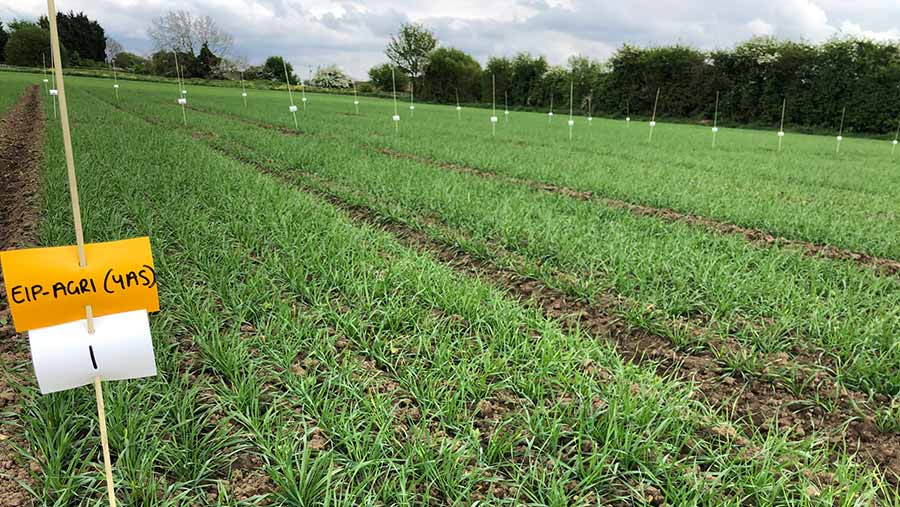Biopesticides ‘as good as pesticides’ to protect wheat
 © Yorkshire Agricultural Society
© Yorkshire Agricultural Society Biological alternatives to chemical pesticides can be used to help deliver comparable wheat yields, according to new research.
The Farmer Scientist Network, supported by Yorkshire Agricultural Society, has been carrying out comparative trials involving spring and winter wheat varieties – see the video below.
The trials found that wheat can be produced using biocontrol technologies, alone or in combination with conventional crop chemistry, while still obtaining similar yields and grain quality.
See also: Why biopesticides will play a bigger role on arable farms
Farmers are under mounting pressure to produce high-quality food that consumers demand due to a series of chemical bans that have limited their toolkit to combat diseases and pests at a time of increasingly challenging weather patterns.
The use of bioprotectants can reduce the environmental impacts associated with chemicals, say the researchers, who hope the trials involving spring and winter wheat varieties could be developed into a viable, widespread solution for growers in the future.
Farmers and scientists joined forces to carry out the Crop Health North project, which aims to find scientific and technological solutions to agricultural challenges.
EU funding
The study was carried out over three years across field sites at Stockbridge Technology Centre and Newcastle University’s Nafferton and Cockle Park Farms. The trials using bioprotectants have been funded through the EU’s European Innovation Partnership (EIP-Agri).
Bioprotectant specialist Dr Roma Gwynn, director of Biorationale, worked closely with farmers and agronomists to design the trials, having collectively identified an urgent need to explore new, innovative crop protection products.
Bioprotectants are crop protection products found in nature or derived from it, and so they degrade easily once applied to crops.
During the trials, bioprotectants were applied to spring wheat varieties, Willow and Mulika, and winter wheat varieties, Skyfall, Leeds and Sundance.
Three treatment programmes were used, one using conventional chemical crop protection products, one only using bioprotectants and another involving integrated pest management techniques.
The wheat varieties were chosen due to either their susceptibility to diseases or various resistance ratings.
Next steps
David George, reader in precision agronomy at Newcastle University, said: “The project has quite clearly shown that bioprotectants can perform just as well as synthetic crop protection chemistry, especially in integrated programmes.
“The next steps forward are to take the management regimes that have performed very well in our studies to date, and try and look at how we can optimise their use.”
James Standen, director of farming at Newcastle University, added: “We are losing active chemical ingredients to protect crops from pests due to the ‘precautionary principle’ and some crops have now developed a resistance to some chemical treatments, so identifying new opportunities for farmers to help grow profitable wheat crops is really important.”
The Farmer Scientist Network will share the findings during a free webinar from 2-3pm on Wednesday 28 July. Register free for the Crop Health North webinar.
What are biopesticides?
Biopesticides are mass-produced, biologically based agents used for the control of plant pests. They include:
- Living organisms (natural enemies) – Invertebrates, nematodes and micro-organisms
- Naturally occurring substances – Plant abstracts; Semiochemicals (eg insect pheromones)
- Genes (US) – Plant incorporated products
Source: Justin Greaves, University of Warwick

